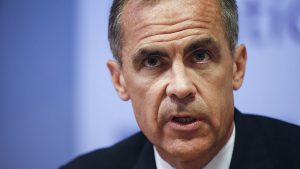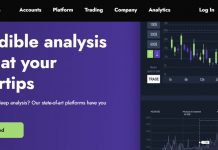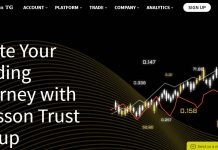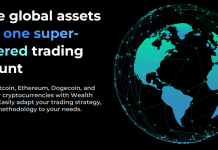Hike now fully priced in
 Tomorrow’s meeting of the Bank of England’s Monetary Policy Committee is in most trader’s
Tomorrow’s meeting of the Bank of England’s Monetary Policy Committee is in most trader’s
eyes certain to see a hike in interest rates. There is very little empirical evidence to support such a view other than inflation which last month reached 3%. Since this has been “on the cards” for some time the timing of any hike remains questionable. It is without precedent for the MPC to hike rates with growth as weak as we saw recently with Q3 GDP at a meagre 0.5%.
The pound rallied against both the dollar and common currency yesterday as optimism grew that this could be the first in a prolonged series of rate hikes rather than the one off “dovish hike” most are expecting. Having moved from scepticism over the need for a hike, it is a giant leap of faith to now expect another hike in early 2018.
The relative strength of the pound has also been attributed to comments made by Brexit Chief Negotiator Michel Barnier who has said the date and agenda of the next round of negotiations will be released imminently. There is hope that contained in the agenda will be a reference to commencement of the stage two where the future relationship will be discussed.
FOMC meeting a prelude to a December hike
In what is likely to be her last meeting before the announcement that she is being replaced, Janet Yellen, the current Chairman of the Federal Reserve will most likely provide advance guidance on the probability of a rate hike at her final meeting in December.
Also in the meeting will be her now most likely replacement, Jerome Powell. Mr Powell has
been a Federal Reserve Governor since 2012 and is a safe option to continue the normalization of monetary policy as additional measures are withdrawn.
The dollar index has recovered from its lows despite the continuing issues over Russia’s
involvement in the U.S. election and the President’s inability to pass legislation through Congress as fast as he would wish.
Friday’s employment report for October is providing a high degree of optimism. There are
reports that the headline non-farm payroll could be as high as 312+ new jobs created but it is the revision to the September number that is the most eagerly awaited. Despite the fall being attributed to the effect of successive hurricanes battering the south west of the country, a revision, at least into positive territory, would prove very positive for the dollar.
Error, group does not exist! Check your syntax! (ID: 4)
Eurozone growth provided Draghi with cause for thought.
It is rumoured that Jens Weidmann the Bundesbank President and favourite to succeed Mario
Draghi as ECB President has been joined by members of the ECB Governing council in being concerned at the Central Bank’s continued dovish outlook.
Last week’s ECB meeting and the press conference which followed were as dovish as has been
seen, even at the height of the global financial crisis agreeing the extension of the additional measures despite the size of bond purchases being reduced.
This means that it is highly unlikely that the ECB will be raising rates in 2018 despite Weidmann’s assertion that inflation is on course to rise in the first quarter.
Yesterday’s release of Eurozone wide consumer price data for September tended to favour Sr.
Draghi’s view with the headline year on year figure coming in at 1.5%, well short of the ECB’s perceived target of 2%.
The ECB differs from the FOMC in that, despite its propensity for providing advance
guidance, it does not believe in pre-emptive actions. The reason for that is simple. Since there is a wide diversity between the growth rates and price pressures in such a diverse and loosely connected group of countries where fiscal activity differs so much, it is impossible to model what may happen across the region with any degree of certainty.








![Reltex Group Reviews: Explore business opportunities by Trading [reltexg.com]](https://comparic.com/wp-content/uploads/2023/12/image001-218x150.jpg)
![Mayrsson TG Reviews: Why Choose Crypto-Trading with Them? [mayrssontg.com]](https://comparic.com/wp-content/uploads/2023/12/image1-218x150.jpg)








